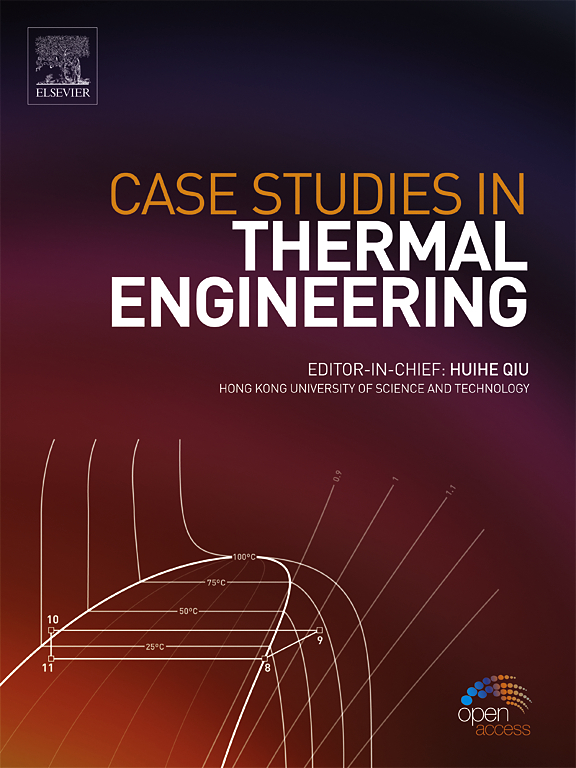Enhanced lotus effect optimization algorithm for efficient problem-solving in high-dimensional complex landscapes
IF 6.4
2区 工程技术
Q1 THERMODYNAMICS
引用次数: 0
Abstract
The lotus effect optimization algorithm (LEOA) is a metaheuristic technique based on the self-cleaning functionality of the lotus flower and other adaptive features. Although LEOA is effective in optimization exercises, it encounters challenges like early stagnation and an imbalanced trade-off between exploration and exploitation. These shortcomings restrict the performance of the algorithm in some complex high-dimensional problem spaces. This paper proposes an enhanced LEOA (ELEOA), in which LEOA is integrated with particle swarm optimization (PSO) to improve convergence rate, stability, and search effective-ness. To validate the performance of ELEOA, it was benchmarked against 12 recent algorithms assessed on a collection of 20 classical benchmarks along with the IEEE CEC 2019 suite. Experimental results demonstrate that ELEOA outperformed competing algorithms on 18 out of 20 classical functions and ranked among the top three in 18 of the 20 CEC 2019 functions. In terms of convergence speed, ELEOA achieved a 35.7 % improvement over the average of all compared algorithms. Furthermore, the algorithm was applied to three engineering design problems, where it achieved optimal or near-optimal solutions with reduced computational cost. These results confirm ELEOA's robustness, accuracy, and potential for solving complex real-world optimization problems.
改进的莲花效应优化算法,用于高维复杂景观的高效求解
莲花效应优化算法(LEOA)是一种基于莲花的自清洁功能和其他自适应特征的元启发式算法。尽管LEOA在优化练习中是有效的,但它遇到了诸如早期停滞和勘探与开发之间的不平衡权衡等挑战。这些缺点限制了算法在一些复杂的高维问题空间中的性能。本文提出了一种改进的LEOA (ELEOA)算法,该算法将LEOA算法与粒子群算法(PSO)相结合,提高了算法的收敛速度、稳定性和搜索效率。为了验证ELEOA的性能,我们对12种最新算法进行了基准测试,这些算法是在IEEE CEC 2019套件和20种经典基准测试的集合上评估的。实验结果表明,ELEOA在20个经典函数中有18个优于竞争算法,在20个CEC 2019函数中有18个排名前三。在收敛速度方面,ELEOA比所有比较算法的平均值提高了35.7%。最后,将该算法应用于三个工程设计问题,以较低的计算成本获得了最优或接近最优的解。这些结果证实了ELEOA的鲁棒性、准确性和解决复杂现实世界优化问题的潜力。
本文章由计算机程序翻译,如有差异,请以英文原文为准。
求助全文
约1分钟内获得全文
求助全文
来源期刊

Case Studies in Thermal Engineering
Chemical Engineering-Fluid Flow and Transfer Processes
CiteScore
8.60
自引率
11.80%
发文量
812
审稿时长
76 days
期刊介绍:
Case Studies in Thermal Engineering provides a forum for the rapid publication of short, structured Case Studies in Thermal Engineering and related Short Communications. It provides an essential compendium of case studies for researchers and practitioners in the field of thermal engineering and others who are interested in aspects of thermal engineering cases that could affect other engineering processes. The journal not only publishes new and novel case studies, but also provides a forum for the publication of high quality descriptions of classic thermal engineering problems. The scope of the journal includes case studies of thermal engineering problems in components, devices and systems using existing experimental and numerical techniques in the areas of mechanical, aerospace, chemical, medical, thermal management for electronics, heat exchangers, regeneration, solar thermal energy, thermal storage, building energy conservation, and power generation. Case studies of thermal problems in other areas will also be considered.
 求助内容:
求助内容: 应助结果提醒方式:
应助结果提醒方式:


